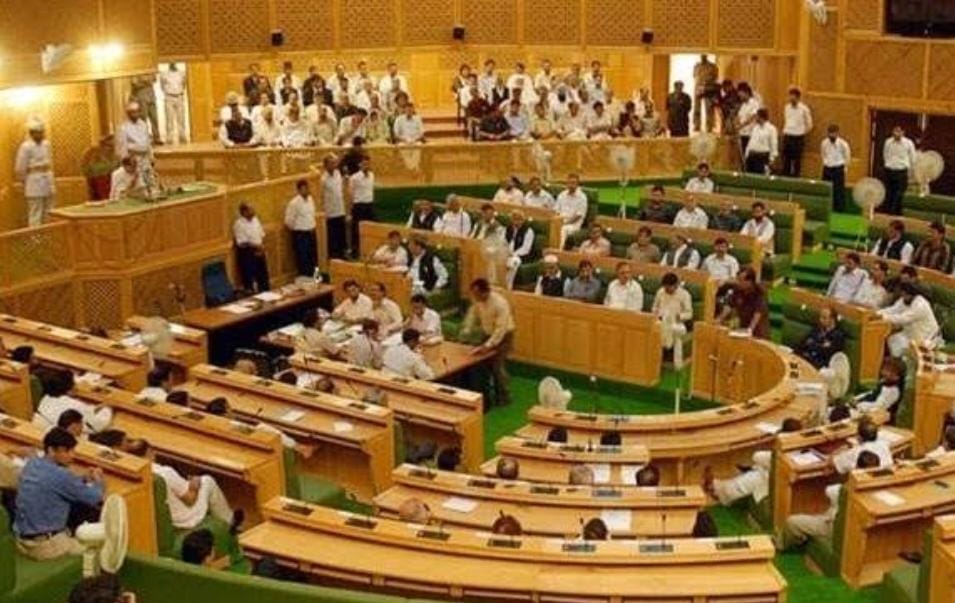
In a significant move, the Jammu Kashmir Legislative Assembly passed a bill today seeking the restoration of the region’s special status, nearly five years after the abrogation of Article 370 in 2019.
The bill, introduced by the ruling National Conference’s (NC), Surinder Choudhary, Deputy Chief Minister and MLA from Jammu region and supported by several opposition parties including the People’s Democratic Party, calls for the reestablishment of the privileges that once set Jammu Kashmir apart within the Indian Union.
The passing of the bill in the state assembly comes at a time of ongoing political uncertainty in Jammu Kashmir, which was reorganized into two Union Territories—Jammu Kashmir and Ladakh—following the revocation of Article 370 in 2019.
The abrogation has been one of the most contentious political moves in India in recent history, sparking widespread protests and debates over the region’s autonomy and rights.
The chief minister of Jammu Kashmir Omar Abdullah has said reiterated constantly that they don’t expect the same central government to restore the special status that revoked it.
Political Significance
The bill passed today marks a key moment in the ongoing political discourse surrounding Jammu Kashmir’s constitutional status.
The move is seen as a direct challenge to the central government’s 2019 decision and reflects the sentiments of many within the region who have called for the restoration of the special status, arguing that the abrogation has led to increased political instability and loss of autonomy for the region.
While the bill has passed in the Jammu Kashmir Assembly, its practical impact remains unclear, as it will face considerable legal and constitutional hurdles before it can lead to any meaningful change.
Legal and Constitutional Barriers
Though the bill passed by the Jammu Kashmir Assembly is a significant political gesture, it is unlikely to alter the region’s constitutional status without further action at the national level.
The Indian Supreme Court had already delivered a significant ruling in 2023, upholding the constitutionality of the abrogation of Article 370, effectively concluding the legal challenges to the decision.
In its ruling, the Court held that the abrogation of Article 370 was a legitimate exercise of Parliament’s powers, reaffirming the central government’s authority to alter Jammu and Kashmir’s special status. The Supreme Court’s decision has effectively rendered any state-level attempts to restore Article 370 legally unviable unless Parliament itself moves to reverse the change, which would require a constitutional amendment.
For the special status to be restored, the Indian Parliament would need to pass a bill with a special majority in both houses, followed by Presidential assent, However, given the stance of the Bharatiya Janata Party (BJP)-led government in favor of the abrogation, it is unlikely that such a bill would receive the necessary support at the national level.
The passing of the bill in the Jammu Kashmir Assembly is likely to fuel ongoing debates about regional autonomy and federalism in India. While it represents the aspirations of many in the region who feel marginalized by the 2019 changes, it also risks exacerbating tensions with the central government, which has maintained that the abrogation of Article 370 was a necessary step for the integration of Jammu Kashmir into the broader Indian polity.
Political analysts suggest that the bill may be part of a broader strategy by regional parties, particularly the National Conference and Peoples Democratic Party (PDP), to reclaim their relevance in the evolving political landscape of Jammu and Kashmir, as the region prepares for future elections.
What Happens Next?
Given the Supreme Court’s 2023 ruling and the constitutional hurdles involved, the bill passed by the Jammu Kashmir Assembly is likely to remain symbolic in nature. It will face significant legal and political obstacles before any substantive changes can occur.
For now, the Indian Parliament would need to initiate any process of constitutional amendment to alter the status quo, a move that seems unlikely under the current government. Additionally, the political situation in Jammu Kashmir remains complex, with a mix of local aspirations for greater autonomy and the central government’s desire for full integration of the region.
While the passing of the bill in the Jammu Kashmir Legislative Assembly marks a significant political moment, the road to any restoration of special status will likely require more than just regional legislative action—it will need the backing of both Parliament and the Indian people, as well as resolution of ongoing legal and constitutional questions.
Only time will tell if this resolution will meet the same fate as the autonomy resolution passed by the National Conference in 1998, or if a political twist awaits.




